#malls taxis all establishments played her songs
Explore tagged Tumblr posts
Text
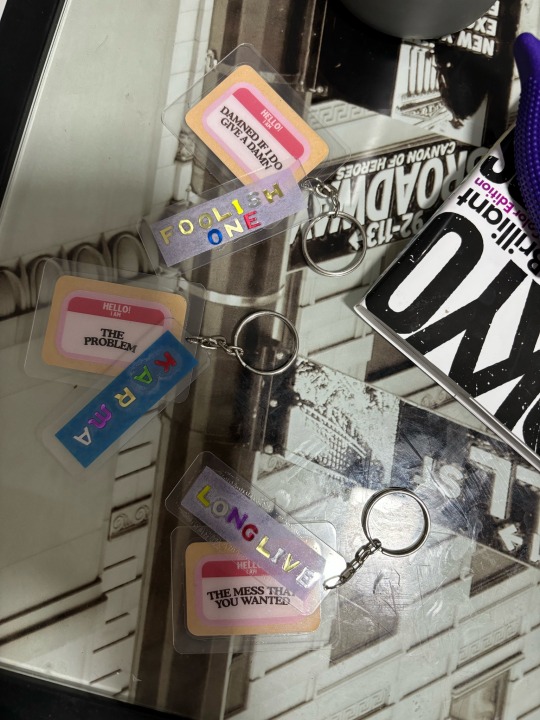
finally done making these keychains for my besties 🥹 it's confetti from the concert + their favorite ts songs that are part of the eras setlist (one bestie is lucky bc her fav ts song is foolish one and that was one of the surprise songs during n3 which i attended)! the nametags are actually stickers i got from haji lane, at a shop that sells fanmade merch. these mfs kept me alive long enough to see taylor live. long live all the magic we made! 🫶🏻
#fromaryg: rara#taylor swift#the eras tour#ik some asean countries were salty bc of the deal sg had w ts#but there couldnt have been a more perfect location#the entire city was in on it#everyone knew it was gonna be swift city for a week and they all participated#malls taxis all establishments played her songs#youd see people walking around in their eras outfits and no one would talk shit abt it unlike here in ph#ppl would be quick to call u cringe lol#ppl would hand out free ts stickers in the streets#u would be given a discount at some shops if u showed ur eras ticket#sg u deserve what u asked of taylor!
1 note
·
View note
Text
Wednesday 23th October 2024
It sometimes takes us by surprise when something small can bring so much pleasure. One such example might be found with the pedestrian crossing set-up here on crossroads; and there are a lot of those due to the grid system. When the little green man light shows, and he is on a four road junction, it is permitted to cross DIAGONALLY! It's great, you can do that all day long I'd you want.
A trip into Coles (round the corner down Peel) this morning, you realise that the Aboriginal population is out in force. They are sensible enough to avoid the midday and afternoon sun.
Today we took a taxi to the airport to collect our rental car that will take us 2500kms across the outback to Townsville. Our first stop is in Kakadu National Park for seven nights, but our accommodation is, well, basically a tent with glass doors, king size bed so not really roughing it, but doesn't have cooking facilities. So we are stocking up with loads of water, wine and anything edible that does not require cooking or chilling. That rules out Tim Tams for obvious reasons in this heat. Thankfully, the next stop has all the kit and caboodle so we will be able to cook again. We booked the car on-line at home through a company called holidaycars.com. Now I know that sounds dodgy but they use Europcar to actually provide said vehicle. In our defence for such a rush of madness was that few rentals would be happy to take their expensive vehicle thousands of kilometres and dump it there far from home. They did, but what surprised me most was when we showed up at the Europcar stand at Darwin airport, they actually gave us a car. I say car but this is an enormous lump of tin. It's a Ford Ranger pickup. Huge it is but still petite compared with some of the 4x4 outback offroaders with cow bars on the front. Transaction complete, the little desk clerk suggested that we might seriously want to carry some weapon with us, you know, he said, just in case. Not necessarily a gun, perhaps a bat or a large spanner? I mean what is out there? Are we talking animal or human here I asked. He pursed his lips.
We shall be sad to leave Darwin. It's a great town. Small town, big community. We watched a man in high vis pressure washing 10 meters of pavement this morning. It took him 1.5 hrs. Pretty good, just a mile and a half left to do. It's almost like they find things for people to do! After sorting this admin, we went for a Guinness in Shenannigans. Irish pubs are all over the world! As the barmaid poured it I enquired if it were genuine Liffy water. A rather blank look came upon her as she said she could find out.
Our first visit here was on the cruise ship in 2016. I remember so well stepping ashore onto Australian soil for the very first time and feeling the thrill of achieving something that I'd wanted for so long. When we were back on board, I clearly remember the band playing by the ship's swimming pool and the lyrics:
I've been to cities that never close down
From New York to Rio and old London town
But no matter how far or how wide I roam
I still call Australia home.
Australians are so much more patriotic and home loving than any other nation on earth. This song was sung at the closing ceremony of the 1994 Sydney Olympics I believe. Right up there with Waltzing Matilda.
ps. I wanted to secure a Tee shirt with The Top End emblazoned across it. So I popped into an establishment in The Mall, and when asked if they had such a garment she kind of looked down her nose and said no, try the tourist shop across the road. Clearly I'm not in the snappy dresser category.
pps There is a sogn in tue kitchen that says 'When cooking always operate the extractor fan since there's a $1400 charge on calling the fire brigade out'! Wow, does it extract flames?
ppps Tomorrow we set off deeper into the Northern Territories to Kakadu National Park and the Ourback where Crocodile Dundee was filmed. We are not entirely sure what the WiFi or mobile reception will be, so further posts could be affected.
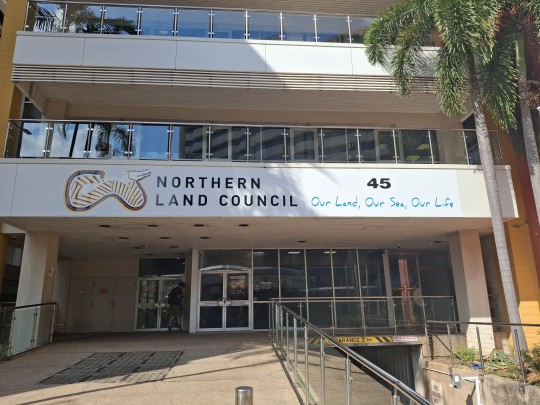
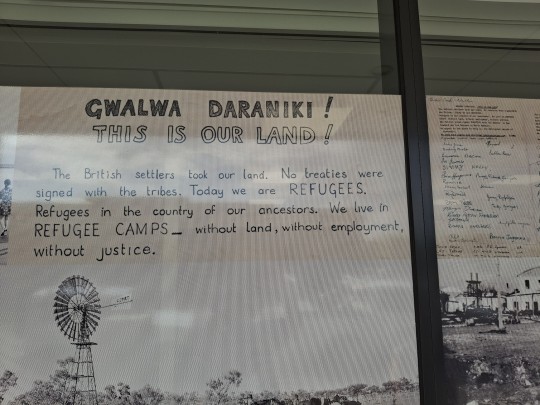
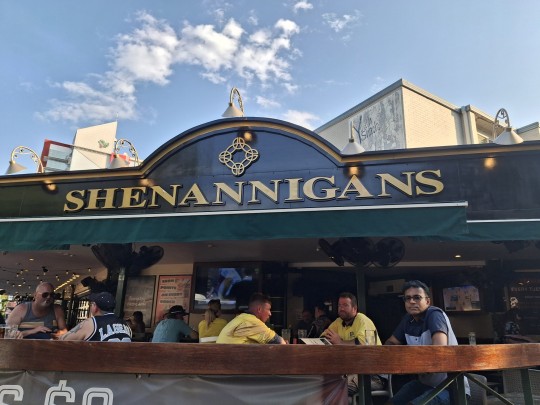
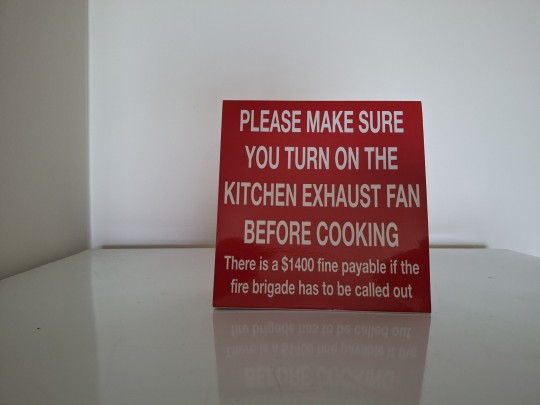
2 notes
·
View notes
Text
South Africa Considers a Minimum Wage
By Norimitsu Onishi, NY Times, Feb. 15, 2017
KHAYELITSHA, South Africa--He works in AIDS prevention and his wife gets the occasional gig at a local supermarket. But neither job is regular enough for a “proper home,” Zwai Lugogo says, so his family lives in a shack here in Cape Town’s largest black township, making do with thin walls of painted metal.
Many of his neighbors--housekeepers, factory workers, nurse’s aides--are in the same predicament, working hard at jobs available to black South Africans, but barely scraping by.
“That money that we’re getting from work is just not enough to be able to take care of our families,” said Mr. Lugogo, 34, as neighborhood children, including his 3-year-old son, ran around their narrow street recently. “We need an intervention.”
South Africa is now considering one. Faced with rising discontent over the economy among black voters, the government is weighing something more common in developed economies: a national minimum wage.
Late last year, a government panel recommended about $260 a month, or about $1.50 an hour--a small amount even in South Africa, but close to the median income in a country where the official unemployment rate is 27 percent and nearly half the population lives in poverty.
Last week, the nation’s deputy president, Cyril Ramaphosa, endorsed the panel’s recommendation, vowing that the minimum wage would be in effect by May 2018. But in such a sluggish economy, opponents contend that the effort would destroy jobs, especially for the least skilled.
Supporters counter that a minimum wage is the only way to reduce poverty in one of the world’s most unequal societies, helping to dismantle an apartheid-era system designed to provide cheap black labor for an economy dominated by the white minority.
In few places do divisions run as deep as in South Africa. Wealthy communities with living standards equal to those in the West and inhabited disproportionately by whites rub shoulders uneasily with desperately poor townships. A government survey released in January found that black South Africans, who make up 80 percent of the population, earned only one-fifth of what whites did in 2015.
Some smaller African economies, like those of Cameroon, Ghana and Ivory Coast, already have a national minimum wage. But only a small percentage of their workers are in the formal economy and therefore eligible for the minimum, experts say. And even for them, the rules tend not to be enforced.
A national minimum wage would be more meaningful in a big economy like South Africa’s, experts say, because the formal work force is much larger, around 80 percent of all workers. Millions of people would be eligible.
Still, South Africa, sub-Saharan Africa’s most advanced economy, is enduring the same forces as the rest of the continent. It is not growing fast enough to absorb its rapidly growing population, which is leaving rural areas to look for work in places like Khayelitsha, one of the country’s biggest townships with about 400,000 people.
There is added urgency for the government to act: The African National Congress, which helped liberate black South Africans from white-minority rule and has governed the country since 1994, is still stinging from losing most of the nation’s biggest cities in elections last July.
The party could once bank on loyal support from the nation’s black majority. But corruption and economic stagnation for millions of people have steadily eroded that support over the years, resulting in the party’s worst showing in elections since the end of apartheid in 1994.
The frustrations are evident in Khayelitsha. It is roughly situated between two of South Africa’s richest areas: the city of Cape Town and the famed wine country of Stellenbosch. Established in 1983 by the apartheid government, Khayelitsha, which means new home in Xhosa, still provides many of the workers for both communities.
On weekday mornings, soon after daybreak, the men and women of Khayelitsha leave their neighborhoods and walk to the nearest train or bus station. For many, the commute takes up to a couple of hours each way.
Many on Mr. Lugogo’s street, known as Twecu Crescent, said their commute cost them a quarter or a third of their monthly wages. For black South Africans nationwide, the cost of taxis, buses and other passenger road transportation accounts for 5.4 percent of their expenses, compared with 0.2 percent for whites, who tend to own cars.
A bus called the Golden Arrow stopped not far from Twecu Crescent with a few passengers already on board. It made several stops in Khayelitsha and, after passing a densely packed stretch of shanties, some precariously stacked two high, it pulled out of the township on its way toward Cape Town. Headed to residential areas, the bus transported mostly women who worked in malls or in homes as housekeepers.
Along the way, in a scene repeated in many buses that morning, a woman, in this instance Julia Xakata, began preaching and leading the others in song. Some sang softly while checking their cellphones.
Sitting near the front of the bus next to a window, Makatiso Sekhamane moved her lips while knitting a black cap.
“I knit whenever I have some free time,” Ms. Sekhamane, 47, said, explaining that she usually completed a cap in two days and sold it for about $4. “It’s something.”
The caps supplemented the $400 a month she made working six days a week cleaning white people’s homes. Her husband earned maybe $150 repairing refrigerators. Their combined income supports five children and two grandchildren at home.
Much of the discussion surrounding a national minimum wage--led by government, business, labor and academics--is expected to focus on the amount. According to the panel’s report, a monthly minimum wage of about $260 “would maximize benefits to the poor and minimize any possible” disincentives to work.
The amount proposed by the panel is below the working poverty line of $325 a month, but because the median income of South African workers is only $280 a month, the minimum would help reduce inequality, the panel said.
On Twecu Crescent, many of the employed already earn the proposed minimum, or more. But their wages are far below the salaries earned by the few residents in the nicest homes--$600 a month for a government worker, $900 a month for a young police officer.
The proposed minimum “is not enough,” said Nombeko Mndangaso, who earns about $165 a month working five hours a day as a cleaner in a nursing home. “It won’t make a difference.”
With her husband, who makes $245 a month as a full-time security guard, they earn more than $400 a month. But with rent, transportation, electricity and two daughters, there is little left at the end of the month. A minimum wage of “at least” $340 a month per person, she said, would improve her family’s situation.
Sparsely populated a generation ago, Twecu Crescent now has little or no space between homes. Many homeowners earn extra income by renting out shacks on their property to the endless stream of new arrivals to Khayelitsha.
It was early evening, and, all over Khayelitsha, men and women started coming home, most of them walking from bus stops to their streets, their gait slower than in the morning.
On Twecu Crescent, girls sat on a corner playing a game of rocks. A boy pushing an old tire with a stick cast a long shadow up the street.
The woman who was knitting on the bus, Ms. Sekhamane--better known on Twecu Crescent as Mama Kakiso, or the mother of Kakiso, her son--arrived home.
She had had a busy day and, arriving late at the bus stop, had found no available seats on the Golden Arrow. She took a taxi instead, paying an amount equivalent to half the price of one of her black caps.
“I’m going to wash my body and sleep now,” Mama Kakiso said as she slipped into her home. “I can’t do anything.”
0 notes